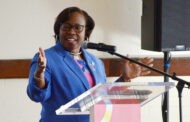A pandemic-founded program has students leading the charge as a new generation of founders and venture capitalists rises together against the backdrop of an evolving and accessible Kansas City, Maggie Kenefake said.
“With underrepresented founders, it’s really shocking,” said Kenefake, managing director of Kansas City University Venture Fund (KCUVF) and venture partner at Royal Street Ventures. “The needle hasn’t moved a lot.”
Founders’ Lab — the latest piece of programming from an effort founded by Royal Street and Ewing Marion Kauffman Foundation — aims to break through the barriers causing such startup gridlock by impacting entrepreneurs at the college level, she said.
“What we’re trying to do is allow investors and founders to cast a wider net — and I think this is a great opportunity to do that,” Kenefake said.
Managed largely by students in the Kansas City University Venture Program (KCUVP) — an experiential learning opportunity in private finance that invests in early stage Midwest companies — Founders’ Lab’s first cohort virtually connected 11 investors with 26 women and underrepresented founders last month.
Founders’ Lab is expected to return in spring 2021. Click here to learn more about KCUVF and KCUVP.
It’s an effort to create conversations between the two groups that could accelerate growth for historically underfunded local ventures, detailed Michael Svoren, KCUVF associate and a senior at the University of Kansas.

Michael Svoren, Kansas City University Venture Program, KCUVP
“The event rotates founders through three one-on-one sessions with investors, empowering each founder to advance the needs of their business by asking for advice, funding, or introductions,” Svoren said, noting the inaugural event resulted in a total of 52 one-on-one meetings between investors and founders.
Founders’ Lab was inspired by a London-based program where Playfair Capital works to navigate the gender imbalance in VC-backed companies throughout the United Kingdom, Kenefake added.
“My friend Chris [Smith, managing partner] at Playfair Capital, his firm had posted an article on Medium that talked about the success of their female founders,” she recalled. “I happened to share the blog post with some of the students and it quickly became, ‘Wow, can we do something like that here?’ but also, ‘Could we expand it to include underrepresented, minority founders as well?”
From there, the program took shape, opening the door for conversations that helped entrepreneurs like Lauren Lawrence, founder and CEO of Stenovate.
“As a first-time founder, I’m always looking for words from the wise,” Lawrence said in a release. “The KCUVF Founders’ Lab was a perfect opportunity to get immediate feedback to questions that have been lingering in my mind. … It was great to connect — or reconnect — with respected VCs and I’m grateful for the opportunity.”
Click here to learn more about Stenovate — on of Startland News’ Kansas City Startups to Watch in 2020.
According to the Kansas City Top VC-Backed Companies list — generated annually by Startland News’ independently-operated parent organization, Startland — 20 of the 131 VC-Backed founders in Kansas City are women, with 11 serving as CEO.
A total of 16 founders identify as non-white.
Debunking the myths, mystery of capital
As beneficial as KCUVF programming like Founders’ Lab is for entrepreneurs and local portfolios, its impact on students could prove even greater, Kenefake said.
“We’re approaching this from a different perspective,” she added, listing ways KCUVF goes beyond more traditional thinking that emphasizes creating an entrepreneurial mindset in young people and focuses instead on raising a generation of students who understand the ins and outs of capital, regardless of their entrepreneurial paths.
“If I were to predict, I would guess we will have just as many founders — or key players in startups — in our ecosystem from this program as we will people on the investment side,” Kenefake continued.
“What we do is sort of debunk the myths or shed light on the black box of venture capital and private finance. We’re hoping to inform a whole group of students about what an investable company will look like and what investors look for and how the process works,” she said. ‘It’s not something that’s taught in school or business school.”
Any chance to equip first-time founders with valuable insight into the funding world could greatly increase the survival rate of future startups within Kansas City’s entrepreneurial ecosystem, Kenefake said.
“Whether they end up on the financing side, the capital side, or they end up working in startups, they have a tremendous knowledge base that we don’t think most students have — or most people have, early in their career.”
Three years into the larger KCUVF program, Svoren said he’s now one of those people.
“The opportunity to come to KC and be completely immersed in the entrepreneurial and venture capital community here has been very valuable to me. I feel more confident in my ability to evaluate these early-stage companies. I eventually want to join one,” he said, noting more immediate plans will have him taking a job at Amazon following graduation.
“I plan to circle back to the startup world in one capacity or another. … Understanding how both sides approach problems, how both sides work through the fundraising process, is super interesting and valuable to me.”










































